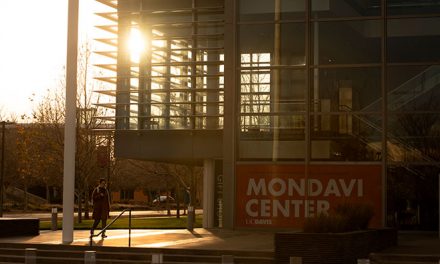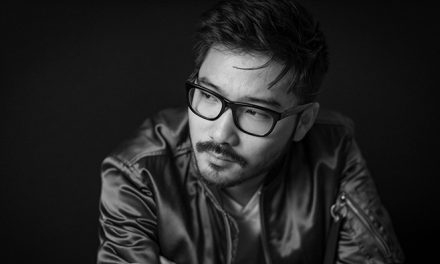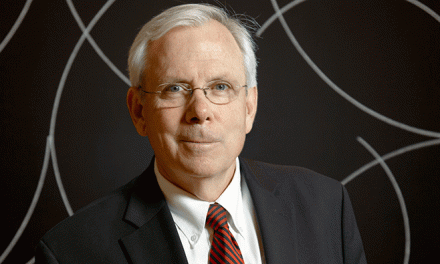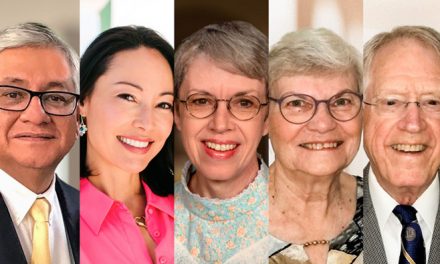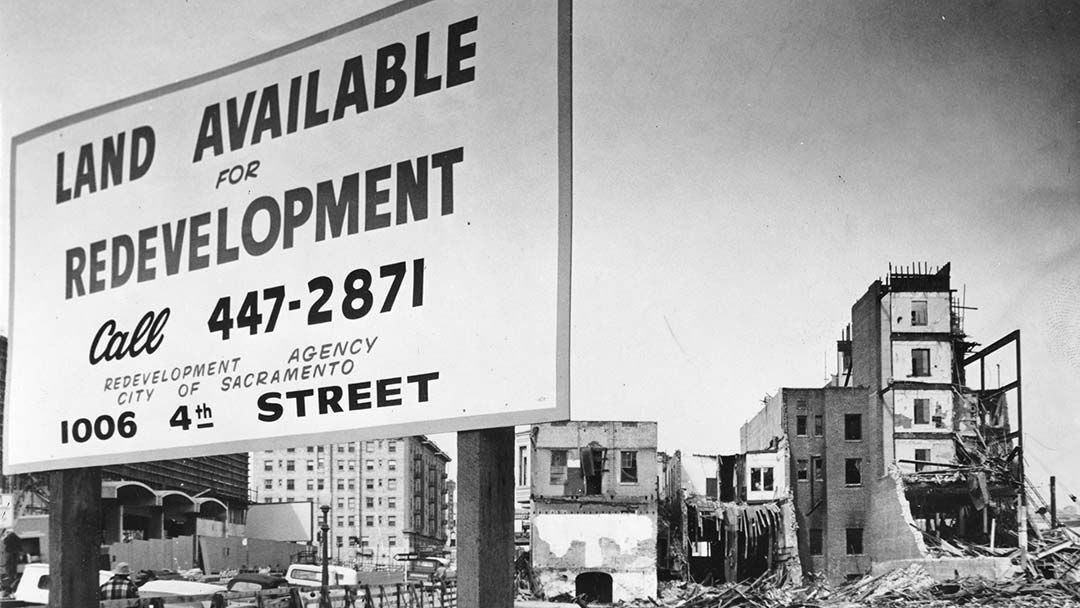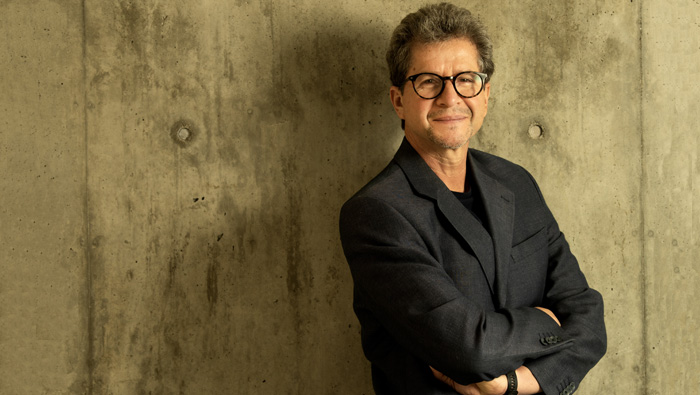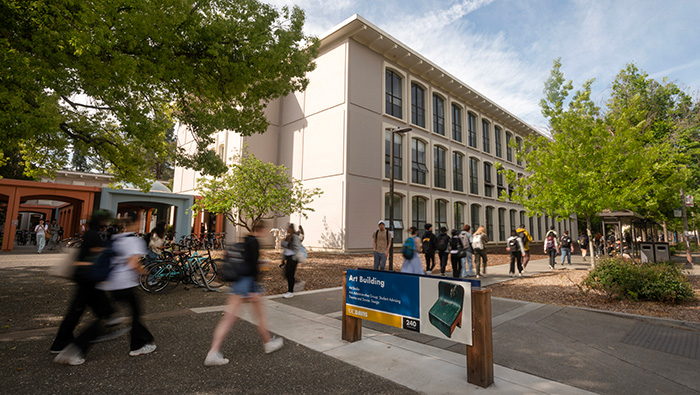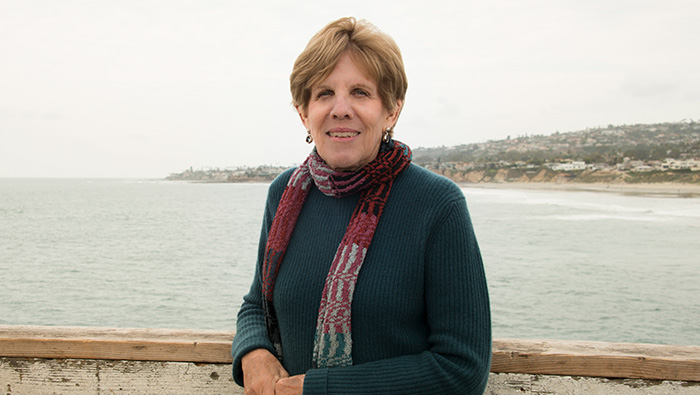
A Sinister Story
California last executed a woman in 1962, and the story behind the crime is almost too outlandish to be believed: Elizabeth Duncan was an obsessive mother who plotted to have her daughter-in-law, Olga, killed in 1958 Ventura, California. Deborah Holt Larkin ’70 was 10 at the time, living in Ventura, where her dad, Bob Holt, was a journalist covering the case for the local newspaper. She draws upon her memories and years of research to tell the story in her first book, A Lovely Girl: The Tragedy of Olga Duncan and the Trial of One of California’s Most Notorious Killers (Pegasus Crime, 2022).
Part memoir and part true crime nonfiction, the book weaves together research that included court transcripts, news articles, interviews, letters and her father’s files and personal recollections. She even accessed an unpublished memoir by the district attorney at the time.
A teacher and then principal for more than 30 years, Larkin studied American history and literature at UC Davis. She met her husband, Tom Larkin ’70, in the dining commons her freshman year. They have been married for 50 years.
“UC Davis launched me into a very wonderful life,” she said.
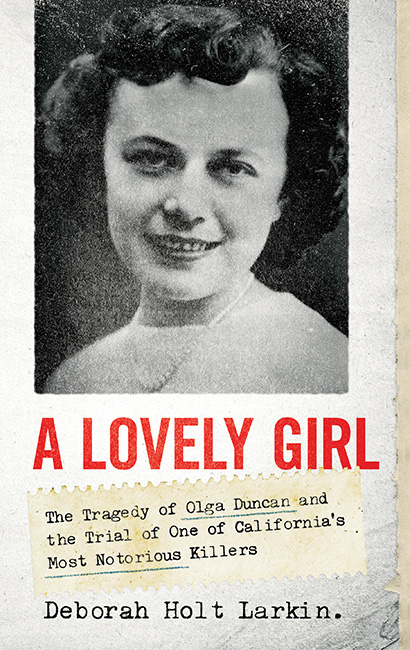
This story is part memoir and part true crime history. How did you decide to combine your personal experiences with this true story of Olga Duncan?
It wasn’t a snap decision. I originally thought I would fictionalize the story because it had always just hung with me. I was really very obsessed with it as a child. But I was in a writers group, and the leader suggested I do both — a memoir of what I remember and then also the true crime. But also my dad wrote a weekly column in his paper about our family life and anything and everything. So when I lived that experience in 1958, I was living both things: that life that he wrote about in the columns and trying to understand that murder.
How did that dual purpose affect the storytelling process?
I think it made it easier because I had these memories and all these years of discussing it with my dad. He was also quite obsessed with the case; it was just such a bizarre case. It helped give context to the true crime story and set it in that period of 1958, which was just before all the changes that came with the ’60s. It was very much an innocent time. And such a contrast to this horrible crime that happened in my hometown. At that time, Ventura was a pretty small town, and these kinds of things didn’t really happen there, we thought.
What do you remember about this case back when it happened?
It was an innocent time, and it tapped into my worst nightmare that some young woman, who looked nice in her picture, could just disappear. First, she had vanished — they didn’t discover her body for over a month. That was something that I worried could happen to me. I was only 10, but I was trying to watch “Dragnet,” and I was a big Nancy Drew fan. Suddenly this was something that was real. And my dad had no filter and very few boundaries about what he would talk about at home. I think he thought the news of the world was all relevant.
How long did it take you to put it all together?
Nine years — not continuously, but I have the writing strategy of rewriting. I would get through 10 or 15 chapters and stop and start all over. Then get to 30 chapters and rewrite again. I did this in bits and pieces until I got to the end. So I did not write it from start to finish; I did a lot of rethinking it. As I progressed, I realized my writing was better. So I would go back to the beginning. I did know very early on how I wanted that last chapter to end, so I had that in mind as I moved along.
Did you go to UC Davis thinking you would become a writer?
Secretly. I didn’t want to mention anything, because I thought it was too lofty of a goal. I went there saying I didn’t know what I wanted to do, but I didn’t want to be a teacher. Like many women at that time, I did end up getting a credential and becoming a teacher, and it was very much a career that I enjoyed. At the time, I thought I might want to be a writer, but I wasn’t very serious about it.
What is it like to achieve your dream of being a writer now after all this time?
It is really sort of unbelievable. Sometimes I’m very stunned by it, but also very happy about it. This was a story that was kind of burning inside of me. Whenever I would talk about it with other people, they were so interested and wanted to know more. I really thought people would be interested in reading about it.

